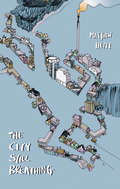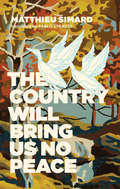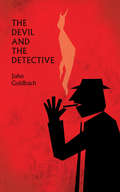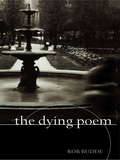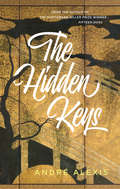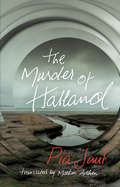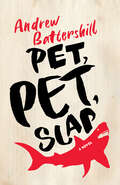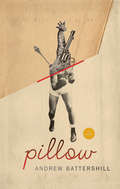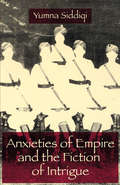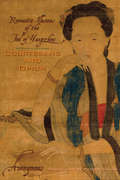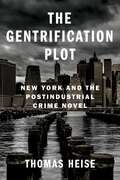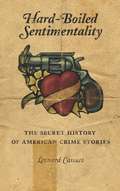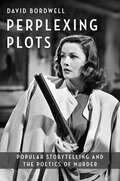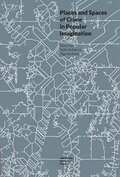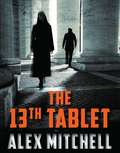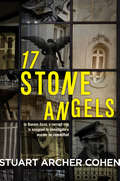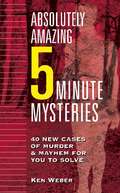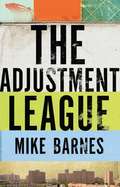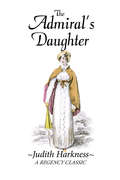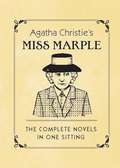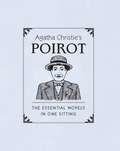- Table View
- List View
The City Still Breathing
by Matthew Heiti?A northern gothic noir, The City Still Breathing is an acid-washed love letter to the 1980s. A body is found on the side of a highway. Naked, throat slashed, no identification. It disappears from the back of a police van and begins a strange odyssey, making its way, over the course of one early winter night, around a northern Ontario town and through the lives and dreams of eleven very different people. These eleven people - from the police officers who retrieve the body to the teenager who carries it away to the young woman planning to strike out for Toronto and Sudbury's local drug dealer - are all damaged in some way, and eventually, through the body itself, are brought together in a strange moment of violence.
The Country Will Bring Us No Peace
by Matthieu SimardSimon and Marie can’t seem to have a baby. And so they flee the city for an idyllic village, where things will certainly be better. But the town is gloomy, even hostile -- things haven’t been the same since the factory closed down and a broadcast antenna was erected. Now there are no birds singing, and people have started disappearing.
The Devil and the Detective
by John GoldbachPrivate detective Robert James is more interested in chronicling his cases than solving them, receives a phone call in the middle of the night from Elaine Andrews, a young woman who has just found her much older husband dead on their living room couch, a knife protruding from his chest. Or at least that's probably what happened . . . Murder, corruption and betrayal ensue as hapless Bob is drawn into both the dark underworld of Elaine and Gerald Andrews - and the tangled web woven by his own mind. Along the way, he befriends a young grad student/?ower-delivery driver, Darren, who inadvertently becomes his sidekick: a Watson to his Holmes, or maybe more like a Sancho Panza to his Don Quixote. Or is it the other way around? Either way, Bob and Darren can't stop drinking, smoking and philosophizing long enough to keep up with the story. The Devil and the Detective is a noir novel about the biggest mystery of all - that of consciousness. It's an unorthodox meditation on writing, love, violence and ideology - imagine The Big Sleep via Fernando Pessoa, with a side of Buster Keaton.
The Dying Poem
by Rob BuddeOn the afternoon that two tonnes of explosives are set to dismember Toronto's Metropolitan Library, poet Henry Black hides himself away in his favourite wing; when his mangled body is uncovered, there's a book lodged in his chest.
The Hidden Keys
by André AlexisAlthough the Green Dolphin is a bar of ill repute, it is there that Tancred Palmieri, a thief with elegant and erudite tastes, meets Willow Azarian, an aging heroin addict. She reveals to Tancred that her very wealthy father has recently passed away, leaving each of his five children a mysterious object that provides one clue to the whereabouts of a large inheritance. Willow enlists Tancred to steal these objects from her siblings and solve the puzzle.<P><P> A Japanese screen, a painting that plays music, an aquavit bottle, a framed poem, and a model of Frank Lloyd Wright's Fallingwater: Tancred is lured in to this beguiling quest, and even though Willow dies before he can begin, he presses on.<P> As he tracks down the treasure, however, he must enlist the help of Alexander von Wurfel, esteemed copyist, and fend off Willow's heroin dealers, a young albino named "Nigger" Colby and his sidekick, Sigismund "Freud" Luxemburg, a club-footed psychopath, both of whom are eager to get their paws on this supposed pot of gold. And he must mislead Detective Daniel Mandelshtam, his most adored friend.<P> Based in a reading of Robert Louis Stevenson's Treasure Island, The Hidden Keys questions what it means to be honorable and what it means to be faithful.<P> André Alexis was born in Trinidad and grew up in Canada. His most recent novel, Fifteen Dogs, won the prestigious Scotiabank Giller Prize, awarded annually to the best Canadian fiction book.
The Murder of Halland
by Martin Aitken Pia JuulWhen Halland is found murdered almost right outside his door, his widow, Bess, is of course the prime suspect. She isn't worried about that, though, but about the daughter she abandoned years ago. As the police investigate, the slightly cantankerous Bess instead follows a trail of her own regrets and misapprehensions. Atmospheric and haunted by the uncanny, The Murder of Halland is anything but your typical whodunnit. It won Denmark's most important literary prize, Den Danske Banks Litteraturpris, and its English translation was longlisted for the IMPAC Dublin Prize.
The Murder of Halland
by Martin Aitken Pia JuulWhen Halland is found murdered almost right outside his door, his widow, Bess, is of course the prime suspect. She isn't worried about that, though, but about the daughter she abandoned years ago. As the police investigate, the slightly cantankerous Bess instead follows a trail of her own regrets and misapprehensions. Atmospheric and haunted by the uncanny, The Murder of Halland is anything but your typical whodunnit. It won Denmark's most important literary prize, Den Danske Banks Litteraturpris, and its English translation was longlisted for the IMPAC Dublin Prize.
Pet, Pet, Slap
by Andrew BattershillRocky meets Elmore Leonard meets Miranda July as Pillow Wilson, a past-his-prime boxer, trains for his last title shot. Shenanigans ensue.Having recently undergone an ethical awakening, Pillow has converted to veganism and is in the middle of trying to rehome his menagerie of exotic pets (including Jersey Joe the sloth and Rigoberto the shark) in humane animal shelters. His roommate, Sherlock Holmes, has recently faked his own death by waterfall, and has now gone incognito and is Pillow’s in-house doping expert.The thing is, Pillow doesn’t feel all that motivated to train for his next big fight, and he’s further distracted from his training when his car and pet shark mysteriously disappear. Luckily, Sherlock is a master of deduction. What follows is part underdog sports story, part work of Neozoological Surrealism, and part existential mystery novel."Reckless, desperate, and achingly human, Battershill remains funnier than anyone else on your shelf." – Andrew F. Sullivan, author of The Marigold"The adventures of Battershill’s returning protagonist Pillow are witty and occasionally absurd, but the story never trips on ironies. Battershill twines the humanity of pulp noir with the unsettling play of surrealism to build a world in which pet sloths, Sherlock Holmes, and skilled drug pushers all seem to have found their ideal home." – Naben Ruthnum, author of A Hero of Our Time"Pillow Wilson is one of my favourite characters in CanLit, and he is in fine form in Pet, Pet, Slap, a deeply funny, inventive, bizarre, heartbreaker of a book. Andrew Battershill not only writes with that magical alchemy of humour and pathos that most writers only wish they could pull off, but he somehow also balances surrealism and profound humanity in a way I’m sure I’ll spend the rest of my life trying to figure out. I haven’t had this much fun reading in a long, long time." – Amy Jones, author of Pebble & Dove
Pillow
by Andrew BattershillMost of the things Pillow really liked to do were obviously morally wrong. He wasn't an idiot; clearly it was wrong to punch people in the face for money. But there had been an art to it, and it had been thrilling and thoughtful for him. The zoo was also evil, a jail for animals who'd committed no crimes, but he just loved it. The way Pillow figured it, love wasn't about goodness, it wasn't about being right, loving the very best person, or having the most ethical fun. Love was about being alone and making some decisions. Pillow loves animals. Especially giraffes. That's why he chooses the zoo for the drug drop-offs he does as a low-level enforcer for the mob. Which happens to be run by André Breton and the Surrealists, like Gwynn Apollinaire, Louise Aragon and Georges Bataille. A gentle soul, Pillow doesn't love his life of crime. But he isn't cut out for much else, what with all the punches to the head he took as a professional boxer. And now that he's accidentally but sort of happily knocked up his neighbour, Emily, he wants to get out and go straight. So when an antique-coin heist goes awry, Pillow sees his chance to make one last big score. But it's hard to outwit a Surrealist, especially when you can't always think so clearly. He soon finds himself kneedeep in murder and morphine, kidnapping a pseudo-priest and doing some fancy footwork around a pair of corrupt cops. With a dark wink of the teeth and a wet fish to the heart, Pillow is literary crime fiction that punches above its weight.
Pillow
by Andrew BattershillMost of the things Pillow really liked to do were obviously morally wrong. He wasn't an idiot; clearly it was wrong to punch people in the face for money. But there had been an art to it, and it had been thrilling and thoughtful for him. The zoo was also evil, a jail for animals who'd committed no crimes, but he just loved it. The way Pillow figured it, love wasn't about goodness, it wasn't about being right, loving the very best person, or having the most ethical fun. Love was about being alone and making some decisions. Pillow loves animals. Especially the exotic ones. Which is why he chooses the zoo for the drug runs he does as a low-level enforcer for a crime syndicate run by André Breton. He doesn't love his life of crime, but he isn't cut out for much else, what with all the punches to the head he took as a professional boxer. And now that he's accidentally but sort-of happily knocked up his neighbor, he wants to get out and go straight. But first there's the matter of some stolen coins, possibly in the possession of George Bataille, which leads Pillow on a bizarre caper that involves kidnapping a morphine-addled Antonin Artaud, some corrupt cops, a heavy dose of Surrealism, and a quest to see some giraffes.
Pillow
by Andrew BattershillMost of the things Pillow really liked to do were obviously morally wrong. He wasn't an idiot; clearly it was wrong to punch people in the face for money. But there had been an art to it, and it had been thrilling and thoughtful for him. The zoo was also evil, a jail for animals who'd committed no crimes, but he just loved it. The way Pillow figured it, love wasn't about goodness, it wasn't about being right, loving the very best person, or having the most ethical fun. Love was about being alone and making some decisions. Pillow loves animals. Especially the exotic ones. Which is why he chooses the zoo for the drug runs he does as a low-level enforcer for a crime syndicate run by André Breton. He doesn't love his life of crime, but he isn't cut out for much else, what with all the punches to the head he took as a professional boxer. And now that he's accidentally but sort-of happily knocked up his neighbor, he wants to get out and go straight. But first there's the matter of some stolen coins, possibly in the possession of George Bataille, which leads Pillow on a bizarre caper that involves kidnapping a morphine-addled Antonin Artaud, some corrupt cops, a heavy dose of Surrealism, and a quest to see some giraffes.
Pillow
by Andrew BattershillMost of the things Pillow really liked to do were obviously morally wrong. He wasn't an idiot; clearly it was wrong to punch people in the face for money. But there had been an art to it, and it had been thrilling and thoughtful for him. The zoo was also evil, a jail for animals who'd committed no crimes, but he just loved it. The way Pillow figured it, love wasn't about goodness, it wasn't about being right, loving the very best person, having the most ethical fun. Love was about being alone and making some decisions.Pillow loves animals. Especially the exotic ones. Which is why he chooses the zoo for the drug runs he does as a low-level enforcer for a crime syndicate run by André Breton. He doesn't love his life of crime, but he isn't cut out for much else, what with all the punches to the head he took as a professional boxer. And now that he's accidentally but sort of happily knocked up his neighbor, he wants to get out and go straight. But first there's the matter of some stolen coins, possibly in the possession of George Bataille, which leads Pillow on a bizarre caper that involves kidnapping a morphine-addled Antonin Artaud, some corrupt cops, a heavy dose of Surrealism, and a quest to see some giraffes. Andrew Battershill is a writer and teacher currently living in Columbus, Ohio. A graduate of the University of Toronto's MA in creative writing program, he was the fiction editor and co-founder of Dragnet Magazine.
Anxieties of Empire and the Fiction of Intrigue
by Yumna SiddiqiFocusing on late nineteenth- and twentieth-century stories of detection, policing, and espionage by British and South Asian writers, Yumna Siddiqi presents an original and compelling exploration of the cultural anxieties created by imperialism. She suggests that while colonial writers use narratives of intrigue to endorse imperial rule, postcolonial writers turn the generic conventions and topography of the fiction of intrigue on its head, launching a critique of imperial power that makes the repressive and emancipatory impulses of postcolonial modernity visible.Siddiqi devotes the first part of her book to the colonial fiction of Arthur Conan Doyle and John Buchan, in which the British regime's preoccupation with maintaining power found its voice. The rationalization of difference, pronouncedly expressed through the genre's strategies of representation and narrative resolution, helped to reinforce domination and, in some cases, allay fears concerning the loss of colonial power. In the second part, Siddiqi argues that late twentieth-century South Asian writers also underscore the state's insecurities, but unlike British imperial writers, they take a critical view of the state's authoritarian tendencies. <P><P>Such writers as Amitav Ghosh, Michael Ondaatje, Arundhati Roy, and Salman Rushdie use the conventions of detective and spy fiction in creative ways to explore the coercive actions of the postcolonial state and the power dynamics of a postcolonial New Empire. Drawing on the work of leading theorists of imperialism such as Edward Said, Frantz Fanon, and the Subaltern Studies historians, Siddiqi reveals how British writers express the anxious workings of a will to maintain imperial power in their writing. She also illuminates the ways South Asian writers portray the paradoxes of postcolonial modernity and trace the ruses and uses of reason in a world where the modern marks a horizon not only of hope but also of economic, military, and ecological disaster.
Courtesans and Opium: Romantic Illusions of the Fool of Yangzhou (Weatherhead Books on Asia)
by AnonymousIn his preface, the anonymous author of Courtesans and Opium describes his book as an act of penance for thirty years spent patronizing the brothels of Yangzhou. Written in the 1840s, his story is filled with vice and dark consequence, portraying the hazards of the city's seedy underbelly and warning others against the example of the Fool.Chinese literature's first true "city novel," Courtesans and Opium recounts the illustrious career of a debauched soul enveloped by enthralling pursuits and romantic illusions. While socially acceptable marriages were arranged and often loveless, brothels offered men accomplished courtesans who served as both enchanting companions and sensual lovers. These professional sirens dressed in the latest styles and dripped with gold, silver, and jewels. From an early age, they were taught to excel at various arts and graces, which transformed the brothel into a kind of club for men to meet, exchange gossip, and smoke opium at their leisure.The Fool's fable follows five sworn brothers and their respective relationships with Yangzhou courtesans, revealing in acute detail the lurid materialism of this dangerous world—its violence and corruption as well as its seductive but illusory promise. Never before translated into English, Courtesans and Opium offers a brilliant window into the decadence of nineteenth-century China.
The Gentrification Plot: New York and the Postindustrial Crime Novel (Literature Now)
by Thomas HeiseFor decades, crime novelists have set their stories in New York City, a place long famed for decay, danger, and intrigue. What happens when the mean streets of the city are no longer quite so mean? In the wake of an unprecedented drop in crime in the 1990s and the real-estate development boom in the early 2000s, a new suspect is on the scene: gentrification. Thomas Heise identifies and investigates the emerging “gentrification plot” in contemporary crime fiction. He considers recent novels that depict the sweeping transformations of five iconic neighborhoods—the Lower East Side, Chinatown, Red Hook, Harlem, and Bedford-Stuyvesant—that have been central to African American, Latinx, immigrant, and blue-collar life in the city. Heise reads works by Richard Price, Henry Chang, Gabriel Cohen, Reggie Nadelson, Ivy Pochoda, Grace Edwards, Ernesto Quiñonez, Wil Medearis, and Brian Platzer, tracking their representations of “broken-windows” policing, cultural erasure, racial conflict, class grievance, and displacement. Placing their novels in conversation with oral histories, urban planning, and policing theory, he explores crime fiction’s contradictory and ambivalent portrayals of the postindustrial city’s dizzying metamorphoses while underscoring the material conditions of the genre. A timely and powerful book, The Gentrification Plot reveals how today’s crime writers narrate the death—or murder—of a place and a way of life.
Hard-Boiled Sentimentality: The Secret History of American Crime Stories
by Leonard CassutoLeonard Cassuto's cultural history links the testosterone-saturated heroes of American crime stories to the sensitive women of the nineteenth-century sentimental novel. From classics like The Big Sleep and The Talented Mr. Ripley to neglected paperback gems, Cassuto chronicles the dialogue--centered on the power of sympathy--between these popular genres and the sweeping social changes of the twentieth century, ending with a surprising connection between today's serial killers and the domestic fictions of long ago.
Perplexing Plots: Popular Storytelling and the Poetics of Murder (Film and Culture Series)
by David BordwellNarrative innovation is typically seen as the domain of the avant-garde. However, techniques such as nonlinear timelines, multiple points of view, and unreliable narration have long been part of American popular culture. How did forms and styles once regarded as “difficult” become familiar to audiences?In Perplexing Plots, David Bordwell reveals how crime fiction, plays, and films made unconventional narrative mainstream. He shows that since the nineteenth century, detective stories and suspense thrillers have allowed ambitious storytellers to experiment with narrative. Tales of crime and mystery became a training ground where audiences learned to appreciate artifice. These genres demand a sophisticated awareness of storytelling conventions: they play games with narrative form and toy with audience expectations. Bordwell examines how writers and directors have pushed, pulled, and collaborated with their audiences to change popular storytelling. He explores the plot engineering of figures such as Raymond Chandler, Agatha Christie, Dashiell Hammett, Patricia Highsmith, Alfred Hitchcock, Dorothy Sayers, and Quentin Tarantino, and traces how mainstream storytellers and modernist experimenters influenced one another’s work. A sweeping, kaleidoscopic account written in a lively, conversational style, Perplexing Plots offers an ambitious new understanding of how movies, literature, theater, and popular culture have evolved over the past century.
Places and Spaces of Crime in Popular Imagination (Topographies of (Post)Modernity: Studies in 20th and 21st Century Literature in English)
by Šárka Bubíková Olga RoebuckThe publication Places and Spaces of Crime in Popular Imagination is part of the Topographies of (Post)Modernity: Studies in 20th and 21st Century Literature in English Series. The text reflects growing interest in popular literary genres not only among the readers, but mainly in literary research. This still rather under-researched area is now representing fertile grounds for various theoretical approaches. As the publication mainly declares its interest in crime-related genres, its focus on place is justifiable: it reflects the postmodern “spatial turn”, manifested in an increased emphasis on the location of crime, not necessarily in the sense of the crime scene itself, but as a socio-geographical place and space. The setting of crime has a specific and well-defined role in the traditional crime genres, but this role has been redefined in the modern versions of crime-related fiction. ranging from educating the reader in certain areas, bringing up current problems, deepening the psychological aspect of individual characters etc. The published volume brings forth various aspects of this new role of place in popular genres centering on crime and gives space to its deeper analysis. It is not the researchers´ objective to provide overviews of the history of the theoretical discussion of place and space in literature in general. Instead, although the essays do employ a variety of critical approaches, the collection strives to show practically how place and space is employed in the specific material of the selected works.The seven chapters are written by scholars from the Czech Republic, Poland and Slovakia. Two essays represent London as a topos and a chronotope in the works by contemporary British writers of crime fiction. The selection is to show how varied the literary London can be, albeit in the often rather formulaic popular genre. The essays also document a shift from the country setting typical for the British Golden Age of detective fiction to the more recent urban focus. One contribution focuses on the genre of spy novel to show how rendering of place and space can contribute to the genre’s typical atmosphere of suspense, secrets and disquiet. Four more essays analyze a variety of places and spaces in American crime fiction, crime comics and crime film. All of the places are in some way specific to American milieu – the suburbia, the university campus, the wilderness, a holiday resort with a state park. These essays are designed to show the contemporary variety of places where crime literature (or film) is set and to document a shift from the traditional urban setting of American hard-boiled fiction to a far greater recent diversity.The volume brings together most recent central European research on the topic of place and community in popular imagination. Thus, it represents a unique insight into this growing phenomenon, which can no longer be overlooked by the academic community.
The 13th Tablet
by Alex MitchellIraq, 2004. The war on terror rages on and as lawlessness escalates in Iraq, looters are hitting the museums. Mina Osman, a spirited young American archaeologist of Iraqi descent appalled at the loss of her parents' heritage, heads to the University of Mosul to help source Iraq's antiquities. While reprimanding one of her students for conspiring with the looters, a cuneiform tablet dating back three thousand years is handed over for restitution. The tablet holds within it a profound secret about the primordial flood described in the Gilgamesh epic. What begins as a straightforward translation of an ancient text triggers a series of disruptive and life-threatening events. A chase without limits ensues which takes the savvy and adventurous Mina and Jack, a handsome ex-US Army Major, from Mosul to Safed and from Cambridge to Phuket, in the midst of the tsunami cataclysm. Alex Mitchell is an honorary researcher at the Institute of Archaeology, Oxford University. Alex is working on two sequels to The Thirteenth Tablet which will take Mina Osman to China, India, and Greece, with a climax in North America.
17 Stone Angels
by Stuart Archer CohenIn Buenos Aires, a corrupt cop is assigned to investigate a murder he committedCommissioner Miguel Fortunato is nearing retirement after a long, dishonest career. Six months ago he was ordered to kidnap foreigner Robert Waterbury for reasons left unclear. The kidnapping turned to murder. Now the Americans are sending their own investigator, and Fortunato is assigned to support her.Fortunato is quickly drawn into the dazzling world of his victim, a failed novelist who came to Buenos Aires desparate to make a big score. As he uncovers the vast outlines of a global crime, Fortunato begins to unravel not only the murder, but the deeper mystery of his own career and the lies that have sustained it.
Absolutely Amazing Five-Minute Mysteries
by Ken WeberAnother installment in our wildly successful series of succinct whodunits, Absolutely Amazing Five-Minute Mysteries offers more than 40 new intriguing cases to thrill, entertain, and solve in less time than it takes to brew a cup of tea! Astute readers can test their powers of observation and deductive reasoning, then turn to the end of the book for ingenious solutions to each case.
The Adjustment League
by Mike Barnes"Fiercely alive, marked by a sharp, unerring eye for detail and a wonderful way with metaphors."--Toronto Star At a psychiatric hospital in the eighties, patients formed what they called The Adjustment League to protect themselves against the depredations of a corrupt and abusive staff. Many years later, the leader of this group--a man known only as "The Super"-- receives a letter leading to the discovery of a pornographic ring in need of "adjustment."Mike Barnes is the author of eight previous books. Born in Minneapolis, Minnesota, he lives and writes in Toronto, Ontario.
The Admiral's Daughter
by Judith HarknessIn this classic Regency Romance, reminiscent of the work of Jane Austen, Judith Harkness tells the tale of Maggie Trevor, the spirited daughter of a hero of the Napoleonic Wars. With a light touch and witty eye for human foibles, Harkness paints the fashionable world of Regency England, when styles were dictated by Beau Brummel, the Duchess of Devonshire held court, and dandies paraded in their phaetons and four. Groomed by their mamas to capture the hearts of the most eligible bachelors of the day, fashionable young ladies passed the Season in London, where they were presented at Almack's and at an endless stream of balls in all their finery and feathers.Ever since she could remember, Maggie Trevor had heard her dead mother's aristocratic family dismissed as autocratic and cruel by her doting father. But when Admiral Trevor unexpectedly sends her off to visit the new scion of that very family, the arrogant Lord Ramblay, Maggie has reason to harbor her own suspicions about her cousins. Lord Ramblay's icy, unfeeling manner and mysterious disappearances is in complete contrast to his stated desire to take care of his young cousin. And when gallant Captain Morrisson, whose welcome attentions and helpful assistance have made Maggie's entrance into London society so much more pleasurable, alludes to a sordid affair in the Viscount's past, Maggie is more sure than ever of his sinister intentions. Soon Maggie is in a whirlwind of suspense, left with no one but herself to trust, and no heart but her own to obey.The Admiral's Daughter will delight readers craving a good, old-fashioned romantic mystery in the tradition of Jane Austen and Georgette Heyer. From elegant London balls to majestic country estates, from gowns and curricles to brilliant hunting scenes, it brims with period detail and will immerse the reader in a true romantic escape.Judith Harkness is the author of five classic Regency Romances: The Montague Scandal, The Admiral's Daughter, The Determined Bachelor, Contrary Cousins, and Lady Charlotte's Ruse, all originally published by Signet. She is the co-author of a screenplay, EMMA in New York, an updated version of the classic Jane Austen novel set in contemporary Manhattan. As J.H. Richardson, she writes non-fiction on subjects ranging from children with learning and developmental issues to profiles of notable creative artists. She lives in Rhode Island with her husband, Will Taft.
Agatha Christie's Miss Marple
by Jennifer KasiusMiss Jane Marple, the elderly spinster from St. Mary Mead, is one of mystery fans’ most beloved sleuths. She is featured in twelve of Agatha Christie’s classic whodunits, all of which are summarized here in this tiny tome. Featuring plot synopses, character profiles, and photographs, this miniature edition gives any mystery lover a chance to cozy up with their favorite cases, from The Murder at the Vicarage to Sleeping Murder. Perfect for reading in small bites, or devouring all in one sitting!
Agatha Christie's Poirot
by Jennifer KasiusAgatha Christie, the world’s "bestselling novelist,” according to Guinness, centered a majority of her novels and short stories on the adventures of one master detective: Hercule Poirot. Enjoy the best of these works in this tiny tome--all in one sitting. This miniature volume opens with an introduction and biography on the "life” of Hercule Poirot, followed by summaries of essential Poirot mysteries including Hickory Dickory Death, Murder on the Orient Express, Death on the Nile, and Curtain.
